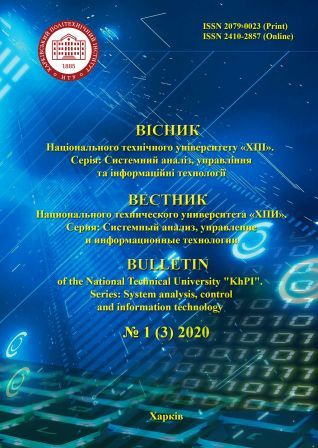VIRTUAL PROMOTION KNOWLEDGE MANAGEMENT TECHNOLOGY
DOI:
https://doi.org/10.20998/2079-0023.2020.01.13Keywords:
Product promotion, CRM, SEO, knowledge managementAbstract
The article presents a new concept of “Management of knowledge about virtual promotion” on the Internet. Usually a real produ ct or service is being divided into four components (product, price, promotion and place) in accordance with the theory of marketing. One of the components is a product promotion. But now this element is becoming a fully virtual tool. It is necessary to consider product promotion as an image or a copy of a real product in a virtual space that lives in parallel on the network. Therefore, the objective of the paper is the presentation of a new object of research based on the experience of more than thirty real projects performed in Ukraine, USA, Europe and Canada. We regard the promotion as a software product, which works according to principles of knowledge management and machine learning. It is proposed that virtual promotion is characterized by four views: customer or user, data, technology and marketing. Thus, the structure of virtual promotion business process was presented. It includes four steps: selection of hypertext sources, knowledge representation and extraction, semantic kernel building and quality criterion evaluation to stop the process. Based on the process structure the research tasks were identified. The central task is semantic kernel forming. Then the software architecture was developed. IT solution contains CRM system as accounting tool and Web site as an image of virtual promotion. CRM plays main role as a commander center. Here we form semantic kernel and then send it via marketing channels such as Web site, telegram or viber accounts. Another part of IT solution is Web service such as Bing API or Google API. They help us to build the kernel. Also the paper demonstrates the list of future tasks that should be solved and the example of real project of proposed approach.References
Michael Godlevsky, Sergey Orekhov, Elena Orekhova. Theoretical Fundamentals of Search Engine Optimization Based on Machine Learning. CEUR WS. USA. 2017, vol. 1844, pp. 23–32.
Sergey Orekhov, Henadii Malyhon, Irina Liutenko, Tetiana Goncharenko. Using Internet News Flows as Marketing Data Component. CEUR WS. USA. 2020, vol. 2604. pp. 358–373.
Amy Shuen. Web 2.0: A Strategy Guide: Business thinking and strategies behind. USA: O'Reilly Media, Inc., 2008. 266 p.
Ries, A. and Trout, J. Positioning, The battle for your mind. New York: McGraw-Hill Inc., 2001. 228 p.
Pierre Bourque, Richard E. SWEBOK. Guide to the Software Engineering Body of Knowledge. Version 3.0. USA: IEEE Computer Society Publ., 2014. 704 p.
Kotler F. A Framework for Marketing Management. USA: Prentice– Hall Inc., 2001. 456 p.
Kotler F. Marketing Management. USA: Pearson Education, 2009. 889 p.
Definitive Guide to Marketing Metrics and Analysis. USA: Marketo Publ., 2011. 70 p.
Paine K. Introduction: The Evolution of Media Measurement. USA: CyberAlert LLC Publ., 2014. 75 p.
Cherenkov I, Orekhov S. News data mining based on example of polymer market. Information Processing Systems. 2012, vol. 9 (107), pp. 224–227.
Cherenkov I, Orekhov S. Approach for extracting events from news stream. Eastern-European Journal of Enterprise Technologies. 2013, vol. 1, no. 4 (61), pp. 62–64.
Maryin I., Orekhov S. Overdraft agreement processing based on XML and its implementation in bank information system. Bonn: Gesellschaft für Informatik e.V. Publ., 2003, pp. 121–130.
Downloads
How to Cite
Issue
Section
License
Copyright (c) 2020 Bulletin of National Technical University "KhPI". Series: System Analysis, Control and Information TechnologiesAuthors who publish with this journal agree to the following terms:
- Authors retain copyright and grant the journal right of first publication with the work simultaneously licensed under a Creative Commons Attribution License that allows others to share the work with an acknowledgement of the work's authorship and initial publication in this journal.
- Authors are able to enter into separate, additional contractual arrangements for the non-exclusive distribution of the journal's published version of the work (e.g., post it to an institutional repository or publish it in a book), with an acknowledgement of its initial publication in this journal.
- Authors are permitted and encouraged to post their work online (e.g., in institutional repositories or on their website) prior to and during the submission process, as it can lead to productive exchanges, as well as earlier and greater citation of published work (See The Effect of Open Access).


